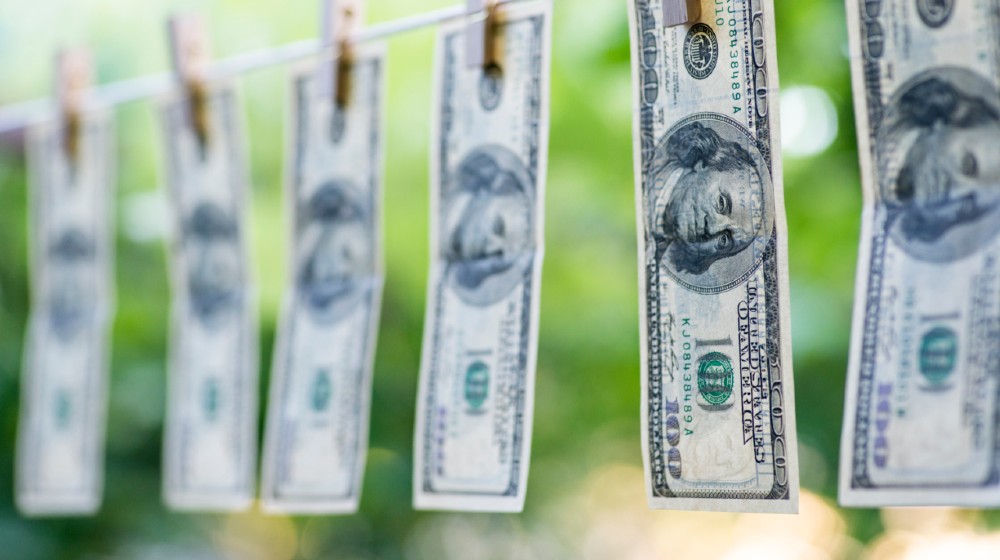News
Money Laundering of Global Banks Reported

US banks helping North Korean organizations to move illicit funds. Asian and European banks’ alleged involvement in money laundering. These are some of the leaked suspicious bank transactions reports that alleged major banks as helping move money illegally. Earlier today, BuzzFeed shared leaked documents submitted by banks to the government.
RELATED: Average Income in the US Was Highest in 2019
Suspicious Bank Money Laundering Cases Reported
These include suspicious activity reports (SARs) filed with the Financial Crimes Enforcement Network. BuzzFeed shared these 2,000+ SARs with the International Consortium of Investigative Journalists (ICIJ). It reported SARS amounting to $2 trillion between 1999 and 2017. While SARs flag these to authorities, they are not definite proof of wrongdoing.
Five Global Banks Are Among Those Reported
According to ICIJ, five global banks appeared most often in the documents. These are HSBC, JPMorgan Chase, Deutsche Bank, Standard Chartered, and Bank of NY Mellon. The reports showed an overwhelmed banking system. One that allows vast amounts, which can include illicit funds, to get past tight controls.
Once banks detect suspicious activity, they have 60 days to file SARs. However, some banks took years before submitting reports. SARs also showed that banks moved funds for companies registered in offshore havens. These include the British Virgin Islands, Cayman Islands, and Panama. Staff is often unaware of account owners. As a result, they often search for Google to determine the identity of people behind the transactions.
The reports include funds processed by JPMorgan for alleged corrupt entities and persons. They include recipient countries such as Venezuela, Ukraine, and Malaysia. The report also included an instance where HSBC accepted and moved money from a Ponzi scheme. A Deutsche Bank SAR said it processed money linked to a Ukrainian billionaire.
Bank Stocks Fall Due to News
Shares of both HSBC and Standard Chartered fell when news broke out Monday morning. Standard Chartered shares fell 2.69%, while HSBC sank 2.91%. Earlier, HSBC shares fell to its lowest price in 25 years.
When asked to comment, HSBC said that they already moved on from the charges. In a statement, HSBC said that all “the information provided by the ICIJ is historical.” It claimed the transactions were already flagged by the Justice Department in 2017. As such, they already met commitments under a deferred prosecution pact. As part of the deal, the Feds deferred all charges if HSBC would fight money laundering. HSBC said they already overhauled their system to fight financial crime. “HSBC is a much safer institution than it was in 2012,” the bank noted.
Standard Chartered also reacted to the news. It said, “We take our responsibility to fight financial crime extremely seriously and have invested substantially in our compliance programs.”
North Korea Moved Money Across Borders
NBC News reported how North Korea got its money despite a global ban. Sanctions prevent Pyongyang from accessing the global banking system. According to documents, NK-linked organizations moved $175 million over the years. These transactions cleared through US banks such as JP Morgan and the Bank of New York Mellon.
Former Treasury Department official Erick Lorber believes that North Korea was behind it. He said: “Taken as a whole, you have what, frankly, looks like a concerted attack by the North Koreans to access the U.S. financial system over an extended period through multiple different avenues in ways that were fairly sophisticated.”
Money Laundering Techniques
A firm from Dandong, China (near the NK border), transacted with North Korea in the open. In 2016, the U.S. indicted Ma Xiaohong and officers of Dandong Hongxiang Industrial Development Corp. They charged Ma and the company for money laundering and helping NK evade sanctions. SARs showed Dandong Hongxiang routed money through China, Singapore, Cambodia, to North Korea. They also used shell companies to move millions of dollars through U.S. banks.
Other reported transactions were from companies from Singapore and China. Until now, charges remain pending and there are no extradition orders.
Who should be the ones responsible and charged with the crime? Are they the rogue countries, who keep finding ways to get their illicit money? Or are they the companies and persons willing to act as fronts? Or do we focus our attention on banks, who may be looking the other way in the name of fat fees and corporate profits? One thing is certain: it’s all about the money.
Watch this as BBC reports that UK banks may have helped with money laundering and moving illicit funds:
Let us know who you think is the most complicit by sharing your thoughts in the comments section below.















